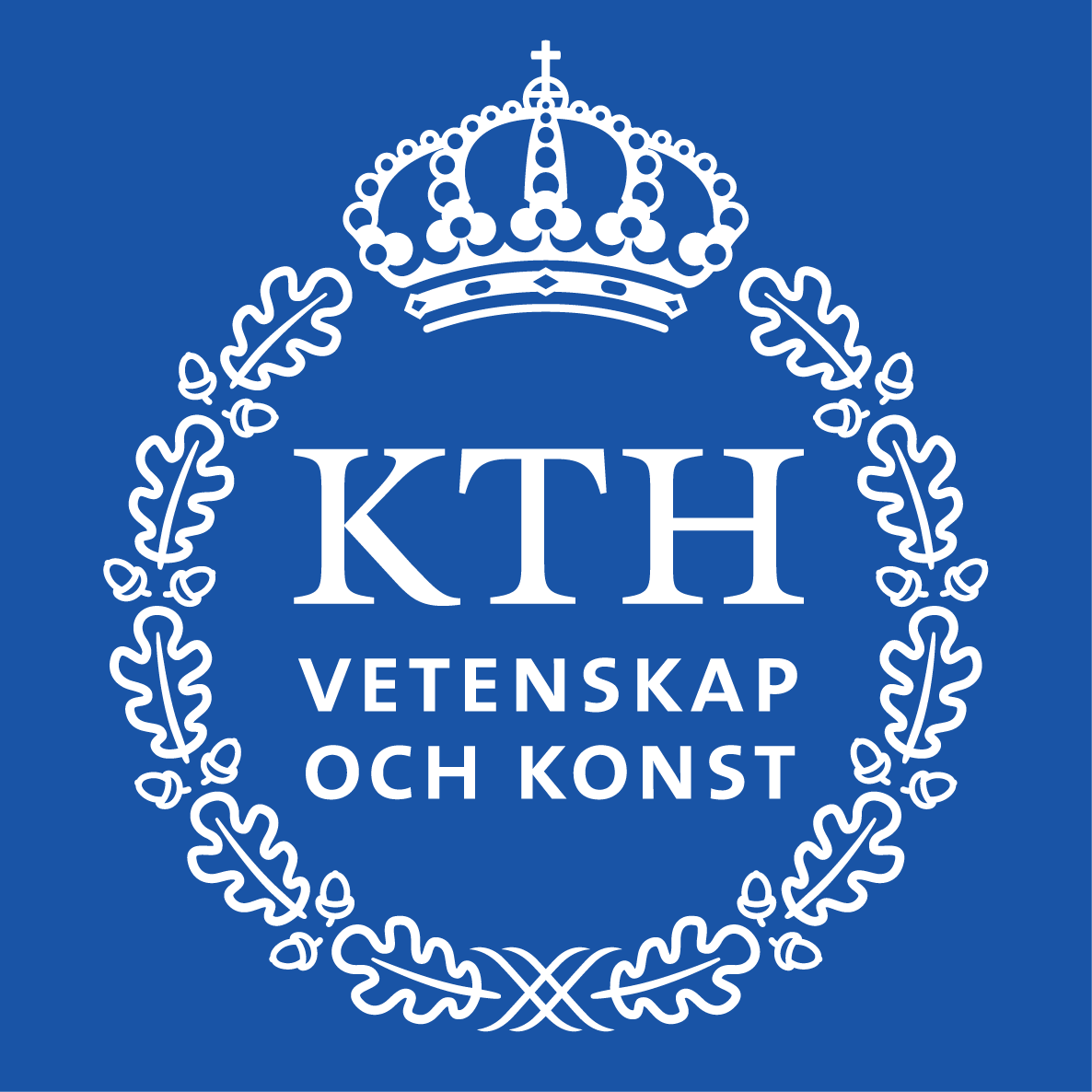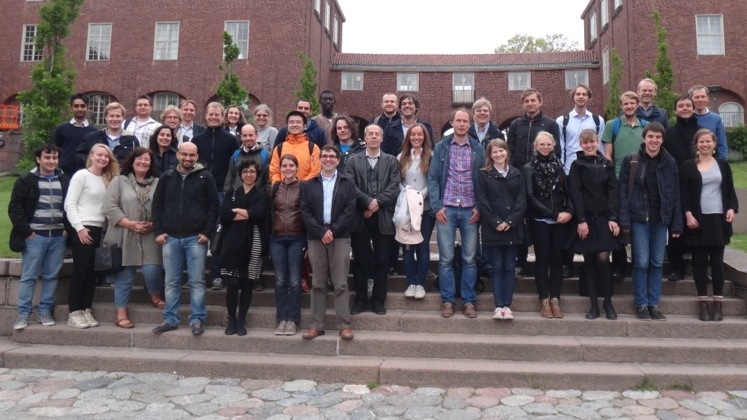
Computational Mathematics Circus
Beräkningsmatematikcirkus
Details
- Date:
- Wednesday 28 May 2014
- Time:
- 13:00–18:00 (buffet dinner starts 18:00)
- Place:
- KTH
room E32, Lindstedsvägen 3 (03tr), 100 44 Stockholm

If you have any questions about the Circus please email Eric
(ejhall@kth.se).
A Circus?
The focus of this meeting on numerical mathematics was to let
younger (and some older) researchers present their work: everyone
was welcome to speak and listen.
The purpose was to exchange new ideas on numerical mathematics
as understood in a broad sense. In particular we were interested
in bringing together modeling, computation and analysis.

The format followed the European Finite Element
Fair:
On the day of the workshop, the workshop time was divided by
the number of interested speakers into time slots; each talk was
10 minutes. Interested speakers, order drawn at random, were then
given the opportunity to present their research. The idea was to
present a new idea or result—not to present details of an
entire research project. Time limits were strictly enforced!
Presentations
The following 10-minute talks were presented at the Circus.
- Ashraful Kadir (KTH)
- Ehrenfest and
Car-Parrinello molecular dynamics with adaptive mass
- Abdul Lateef Haji Ali (KAUST)
- Multi Index Monte Carlo, where sparsity meets sampling
- Samira Nikkar (Linköping University)
- Fully discrete energy stable high order finite difference
methods for hyperbolic systems of equations in moving and
deforming domains
- Viktor Linders (Linköping University)
- Circus presentation
- Malin Källén (Uppsala University)
- Performance impact of
using polymorphism
- Håkon Hoel (KAUST)
- Deviation of a robust Monte Carlo sequential stopping
rule
- Emil Kieri (Uppsala University)
- Operator splitting for
semiclassical quantum dynamics
- Eric Hall (KTH)
- Computable error estimates
for finite element methods for PDEs with log-normal
data
- Slobodan Milovanovic (Uppsala University)
- Radial basis
functions generated finite differences to solve high-dimensional
PDEs in finance
- Emilie Blanc (Uppsala University)
- Time-domain numerical
modeling of poroelastic waves: the Biot-JKD model with
fractional derivatives
- Cecilia Håård (Uppsala University)
- Numerical modelling of
Antarctic and Greenland ice sheets
- Siyang Wang (Uppsala University)
- A hybrid finite difference/finite element method for the
acoustic wave equation
- Markus Wahlsten (Linköping University)
- Reduced variance by
robust design of boundary conditions for an incompletely
parabolic system of equations
- Antti Koskela (KTH)
- Linear algebra for
exponential integrators
- Tomas Lundquist (Linköping University)
- Implicit time
integration using summation-by-parts operators and weak SAT
penalty conditions
- Francisco Bernal (Instituto Superior Técnico Lisboa)
- Iterative variance reduction in probabilistic domain
decomposition
- Sara Zahedi (KTH)
- Cut finite element methods for convection-diffusion problems
on evolving domains
- Hannes Frenander (Linköping University)
- Increasing the rate of
convergence to steady-state by using multiple penalties applied
in a domain
- Simon Sticko (Uppsala University)
- Fictitious FEM for the
wave equation
- Maya Neytcheva (Uppsala University)
- Solution framework for
adaptive finite element methods
- Ali Dorostkar (Uppsala University)
- CPU and GPU performance
of large scale numerical simulations in Geophysics
- Hanna Holmgren (Uppsala University)
- Modeling of moving
contact line in twophase flows
- Daniel Elfverson (Uppsala University)
- Multilevel Monte Carlo
methods for failure probabilities
- Cristina La Cognata (Linköping University)
- Computational
mathematics
Organizers
Eric Hall (KTH), Gunilla Kreiss (Uppsala), Jan Nordström
(Linköping), Anders Szepessy (KTH)
Support

This workshop is supported by
the Swedish e-Science Research
Centre.




